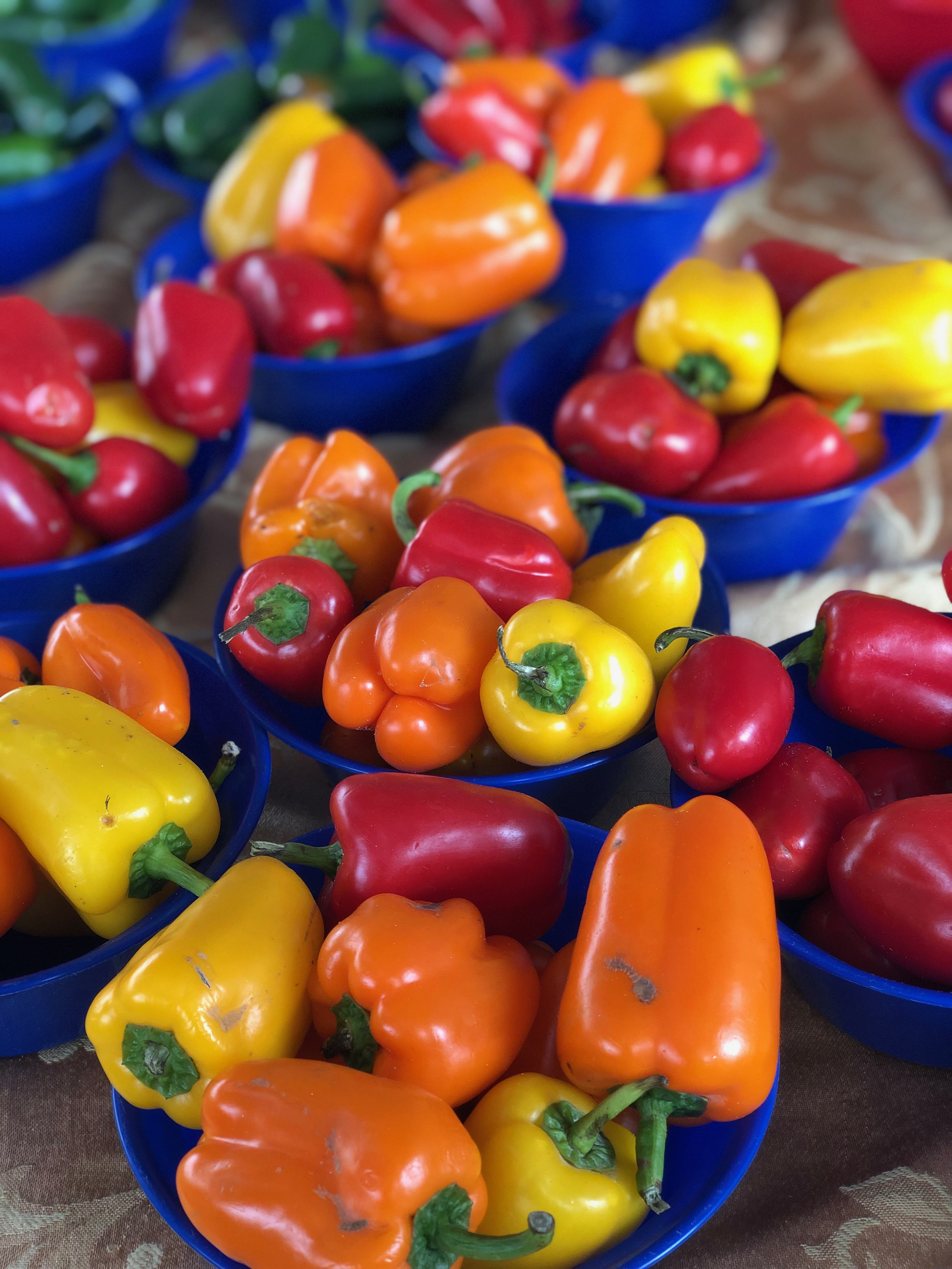Summer in a Jar!
by Zehorit Heilicher, Tastemaker in Residence
Don’t know about you, but I have no impulse control during this season … As I stroll through the isles of my local farmer’s market, the plump red tomatoes beckon, the crunchy peppers in all variety of shiny green, call my name and the fragrant herbs conjure images of hearty stews and aromatic soups. What can I say? No control.
So, then I end up in my kitchen, my counter smothered and groaning with colorful produce just begging to be used and savored. Are you in the same boat with me? Come on… It’s just us and let’s face it – in the scheme of things, this is a vice that you can use to nurture yourself and others! Right? So, no shaming here!
Ok, since we got rid of the guilt, let’s get practical and organized!
Here is my plan:
Wash and take stock of your loot: what can go together, what can be pickled, cooked, frozen?
Set a day or a weekend to invest in stocking your fridge/freezer/pantry.
Check your inventory of containers: canning jars, freezer safe vessels, canner and canning utensils, etc.
Get educated! Check out some online resources for safety tips and processing instructions! National Center for Home Food Preservation
Solicit help: Kitchen work is much more fun when shared!
Put the music on, roll your sleeves and let the fun begin! (Wine optional…)
Label your jars! See Ball Canning resource
More pickling information from The Kitchn
Now that we organized it’s time to get to down the details!
Pickles:
Many vegetables can be pickled, not just cucumbers, whether processed in a canner for longer storage or placed in the fridge for short-term use.
I don’t actually have recipes for pickling, since I often wing it as inspiration occurs. However, here are a few pickling guidelines and suggestions:
*Pickling liquid: Water/kosher salt ratio: 1cup/1 tablespoon (See more suggestions in the link from The Kitchn above.
*Added flavors:
Herbs: dill, celeriac leaves, fresh thyme, oregano, basil stalks, etc.
Spice: garlic, hot pepper (fresh or dried), onion slices, turmeric (for golden color)
Acidity: lemon slices, 1-2 tablespoons vinegar
*Process: Place prepped vegetables into sterilized jars, interspersing with your choice of herbs, spice and acidity. Cover the mixture with salt water, leaving ½” space and then screw on the lid. Process for 10 minutes in a canner filled with boiling water, or place in the fridge. If placed in fridge they’ll be ready in 4-5 days.
Here are two of my favorites:
Dill pickles: cucumber spears, dill, garlic, lemon slices and hot pepper.
Mixed cut vegetables: carrots, cauliflower, radishes, bell peppers, cabbage slices, Kohlrabi, lemon slices; dill, celeriac leaves, turmeric, garlic, sliced jalapeno.
Roasted Vegetables:
Roast vegetables in 425F oven or on broil on parchment paper lined baking sheets (or even on the grill), add your choice of flavorings, store in canning jars and cover in a vinegar solution or olive oil.
Here are a couple ideas:
Roasted tomatoes: Toss in olive oil cherry tomatoes (or halved Roma tomatoes), thyme, garlic, hot pepper flakes and roast for 15-20 minutes until fragrant and a little dried. Place in a canning jar and cover with olive oil. Store in fridge. Sometimes I like a touch of balsamic vinegar with basil for these tomatoes, especially if they are nice and ripe. That way they are perfect for an antipasti platter or smeared on bruschetta for a nice quick appetizer.
Roasted peppers: Roast your choice of peppers (see note) as directed above, place in a bag and seal to steam. Peel the peppers’ skin and slice. Place in a canning jar along with sliced garlic, herb of choice, cover with olive oil or vinegar solution and seal. I like to can same heat peppers together: Poblano peppers, bell, jalapeno, Anaheim, banana, gypsy, etc.
Herbs:
The easiest, simplest way to preserve an abundance of herbs is to puree them in a food processor, portion them into an ice cube tray and then freeze. Once frozen, pop them out into a freezer safe container or bag, label it and place in the freezer for up to 3 months. When ready to use drop a frozen cube of the herb into simmering soup, pasta sauce, stir-fry or stew, or even thaw and add to omelettes and more.
Sounds overwhelming? Start small, with 2-4 jars total of a variety of vegetables and flavors. The process is meditative, the product colorful and the end result – delicious and YOURS! You know what went into it and who made it! What could beat that??
Now, how about all that summer sweet fruity abundance you may ask? Well, since I don’t want to overwhelm you – Let’s save that for another time!




